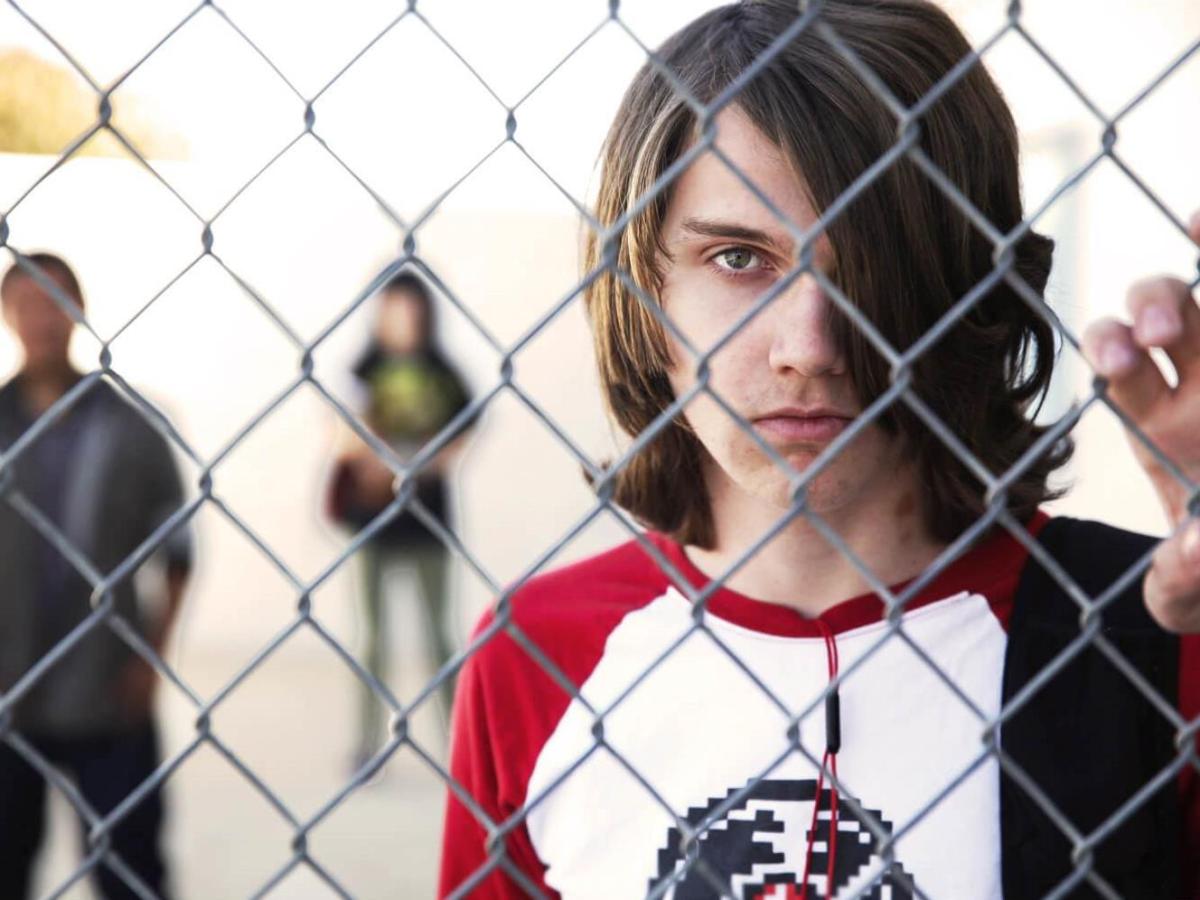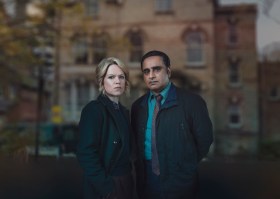“What do you want out of life? What do you expect to get without an education?” a San Bernardino County police officer asks Joey McGee during to a visit to discuss his frequent truancy. Directors Keith Fulton and Lou Pepe don’t wait for the teenager to verbalise a response; however the look on his face communicates a clear message. Whatever words he might’ve been able to share on the subject, he doesn’t really have an answer — but he knows that he doesn’t want the life he currently has, or the one that he seems destined for either.
The Bad Kids focuses on a possible solution to his plight, and to the similar circumstances of other students located in the desolate surrounds of California’s Mojave Desert. When the film next spies Joey, he’s sitting inside Black Rock High School, an alternative public school for kids at risk of dropping out and failing to graduate. Pushing children to attend and serving out punishments for skipping class aren’t on principal Vonda Viland’s agenda. Instead, her facility encourages the aspiring musician and those like him to earn their high school diploma through a self-paced, self-motivated, practical skills-heavy program.
Accordingly, Fulton and Pepe’s documentary — their second following Lost in La Mancha — both is and isn’t the movie audiences expect. Meth-addicted parents, teen fatherhood, homelessness, pregnancy, abuse, drugs, drinking, poverty and abandonment all feature as the filmmakers cycle through individual yet linked narratives, as does the seemingly unlimited enthusiasm, passion and determination of Viland to help her charges achieve the better future they seek. Amidst its balance of tragedy and optimism also lingers an immersive and evocative observation of the reality behind the tales and talk, providing a slice of the lives a lack of options can colour and a glimmer of hope can change.
In fact, just like the expression on Joey’s face in the film’s opening scene, simply watching Black Rock’s pupils as they sit through lessons, interact with their teachers and sometimes offer their thoughts and feelings direct to camera says more than any explanatory narration could’ve. Lensed fly-on-the-wall style and winning a special jury prize at the 2016 Sundance Film Festival for its verite aesthetic, The Bad Kids shows its support for the kind of educational paths it depicts, explores harsh home environments, champions Viland and other administrators in continuation schools, and dissects the damning stereotypes and stigma of its title by lingering not on the big developments and revelations, but on the small, quiet, otherwise overlooked moments.
Fulton and Pepe’s decision to litter the film with poetically shot, atmospherically scored scenes of daily routines — catching the bus on an empty road, hanging out in lunch breaks and heading to the local laundromat, for example — certainly assists in that regard. Here, Pepe’s cinematography work and Jacob Bricca (Sons of Ben) and Mary Lampson’s (This Changes Everything) editing efforts prove crucial, the former flitting between candid close ups and scenic, sun-dappled sights, and the latter maintaining a contemplative yet compelling pace. Though much of The Bad Kids’ potency comes from its choice of subjects and their encapsulation of a broader situation, the documentary’s stylistic approach ensures that it remains a portrait first and a statement second. Indeed, that actions and images speak louder than words could be the feature’s mantra, both for the teens striving for something more and for the filmmakers endeavouring to do their stories and struggles justice.
Rating: 3.5 stars out of 5
The Bad Kids
Directors: Keith Fulton and Louis Pepe
USA, 2016, 101 mins
Rating: 15+
Human Rights Arts and Film Festival
2016.hraff.org.au
Melbourne: 5 – 19 May
Sydney: 24 – 28 May
Brisbane: 24 – 26 May
Perth: 30 May – 1 June
Alice Springs: 30 – 31 May
Canberra: 3 – 5 June
Darwin: 6 – 8 June
Actors:
Director:
Format:
Country:
Release:





